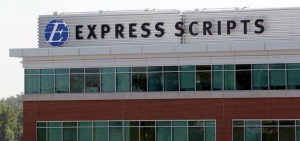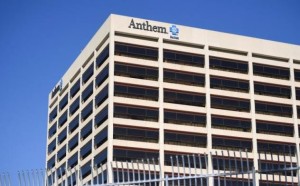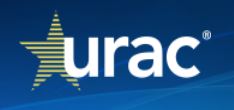- The Complex Math Behind Spiraling Prescription Drug Prices (nytimes.com)
The soaring cost of prescription drugs has generated outrage among politicians and patients. Some cancer drugs carry price tags of more than $100,000 a year, and health plans are increasingly asking people to shoulder a greater share of the cost...Americans regularly cite drug prices as a top health care concern...Higher drug prices threaten to raise insurance premiums and patients’ out-of-pocket expenses and can cost taxpayers more because of Medicaid and other government programs. But drug companies say the prices reflect the enormous investment of time and resources that go into bringing a drug to market and argue that many times, their drugs can prevent more expensive medical interventions like surgery and hospitalization...So how much do drugs cost?...A drug’s path from the manufacturer to the patient is circuitous, and many middlemen are paid along the way...The pharmaceutical company sends the drug to a distributor, which takes a fee and then sells the drug to a pharmacy, which pockets its own fee before dispensing the medication to a patient. If a patient is insured, a pharmacy-benefit manager is paid for processing the transaction between the pharmacy and the insurer or employer. The pharmacy-benefit manager also handles the rebates that flow from the drug maker to the insurer or the employer...The good news first: The vast majority of drugs dispensed in the United States...are generics, which are low-cost alternatives to brand-name drugs. If your doctor writes you a prescription, there is a very good chance it will cost you $10 or less...patients who are the sickest and require the most expensive drugs are the most vulnerable to soaring drug prices..."It’s sort of embedded in the health care system that the price is never the price, unless you’re a cash-paying customer,"...
- Four Takeaways on Drug Spending Realities from the New 2015 Express Scripts Drug Trend Report (drugchannels.net)Express Scripts 2015 Drug Trend Report (lwlink3.linkwithin.com)
Last week, Express Scripts released its new 2015 Drug Trend Report...For the first time, the Express Scripts data account for rebates—a meaningful and welcome improvement in reporting methodology. After accounting for rebates, the 2015 report reveals that drug spending growth is comparable to growth in other parts of the healthcare system. For some payers, utilization (script growth) was a bigger driver of spending than drug prices...So much for the myth of exploding drug costs! Our politicians may not believe it, but Martin Shkreli et al. are the exception in the pharmaceutical industry. Below, I review the four key highlights about traditional and specialty drug spending, trend patterns for different payers, and a red flag from upcoming biosimilar launches.
FOUR TAKEAWAYS
- Commercial payers were better able to control costs.
- More people are getting access, which is “good” spending.
- Specialty growth continues.
- Hunker down for the biosimilar formulary wars.
- Drug spending increase slowed to 5.2 percent last year, Express Scripts says (statnews.com)
Despite rising prices for prescription medicines, Express Scripts released data today showing spending for its health plans rose 5.2 percent in 2015, roughly half of what was seen the year before...the average price of brand-name drugs rose 16.2 percent in 2015...Most of the increased spending was for specialty medications — such as those for hepatitis C, cancer, and other hard-to-treat diseases. Spending for these drugs rose nearly 18 percent, compared with a 0.1 percent drop for traditional drugs for chronic conditions...usage rose nearly 7 percent for specialty medicines, compared with 2 percent for other drugs...Express Scripts boasted that it has successfully used various techniques to manage drug costs. These include formularies with various so-called tiers, which are lists of preferred drugs that require consumers to pay varying amounts. Another tactic is prior authorization, which involves requiring consumers to try different treatments before a more expensive medicine...Another move...was...to curtail coverage of many compounded medications...Total spending on compounded treatments for pain and skin conditions fell 54 percent as usage dropped 56 percent.
- Insurers, drugmakers wrestle with how to build value-based contracts (modernhealthcare.com)
...outcry over drug pricing has forced healthinsurers and pharmaceutical companies to devise ways of expanding access to potentially life-saving drugs without breaking the bank...Value-basedcontracts, in which insurers pay for drugs based on their effectiveness, have begun to sprout, and more are expected to follow. But experts believe these types of deals, although potentially beneficial, are not a panacea for managing drug costs. Value-based contracts may also be hard to orchestrate since they require doctors, insurers, pharmacy benefit managers and drug companies, often rivals, to cooperate and share data...What you still don't know at the end of the day with these outcomes agreements is whether they save money…Paying for the efficacy of drugs is a logical extension of how the U.S. wants to finance healthcare. Medicare rewards hospitals that deliver good care and penalizes those with high levels of costly readmissions. Private insurers have created narrow networks with selected health systems and doctors presumably based on their low costs and superior quality...most difficult hurdle may come once insurers, PBMs and drug companies have agreed on measurable, clinically relevant metrics. Those groups then have to share their medical and pharmacy data to track outcomes, which requires a high level of cooperation from fierce, often unfriendly negotiators...
- Express Scripts wrangles with small mail-order pharmacy (statnews.com)
A small mail-order pharmacy, which ships presorted packets of medicines to its customers, is waging a David-versus-Goliath battle with Express Scripts, the nation’s largest pharmacy benefits manager...PillPack has been part of the Express Scripts network of pharmacies...Recently...Express Scripts decided to cancel its contract with PillPack...PillPack chief executive, claims that Express Scripts is making this move because the company doesn’t want another mail-order pharmacy in its network to compete with its own mail order business...Express Scripts spokesman said the dispute with PillPack is purely about contract requirements...PillPack is "innovative and could be in our network, but hasn’t followed the rules and regulations." He argued that PillPack ships medicines to some states where it doesn’t have a pharmacy license; declared itself to be a retail pharmacy when it primarily does mail order business; and isn’t accredited by a national health care organization...PillPack is licensed across the continental United States, although it did encounter administrative problems in one state that have since been corrected...Express Scripts spokesman maintained that "we don’t see them as a threat. "We see them more as a collaborator especially in terms of patient adherence. But they have to follow the rules,"...
- Health insurer Anthem sues Express Scripts over drug pricing (reuters.com)
...Anthem Inc said it had sued pharmacy benefit manager Express Scripts Holding Co to recover damages from drug pricing it believes was too high...latest development in a months-long dispute over Anthem's contract with Express Scripts...The lawsuit also seeks to recover damages from operational issues and for a declaration of Anthem's right to terminate its contract with Express Scripts…Anthem, which has been seeking $3 billion in annual cost savings through a repricing provision in its 10-year contract with Express Scripts, said it had not yet decided whether to end the contract...The latest news has taken a very unhealthy turn and we see it unlikely that Anthem renews its contract with Express Scripts past 2019, and is likely to leave sooner to the extent it can manage the transition for consumers smoothly...Express Scripts...said in a statement that it believed the lawsuit to be without merit. The company has consistently acted in good faith and in accordance with the terms of its agreement with Anthem…
- What Is URAC Community Pharmacy Accreditation? (pharmacytimes.com)
According to URAC (Utilization Review Accreditation Commission), an independent accreditor that establishes benchmarks and standards for pharmacy practice, any "duly licensed pharmacy in good standing within the jurisdiction of its practice that has at least 1 retail location handling prescription intake and dispensing as well as providing and reporting outcomes on medication therapy management and drug therapy management is the type of organization that applies for URAC Community Pharmacy accreditation."...To earn this accreditation, CVS/pharmacy underwent a rigorous evaluation that validated the quality of the patient care and services it provides, including medication therapy management, wellness services, patient counseling and education, and preventive and chronic disease management...community pharmacy standards assessed by URAC include quality measures reporting, quality management and performance oversight, and pharmacy structure, operations, and drug utilization management..."Having a widely recognized and respected accreditation organization such as URAC independently scrutinize our operation and attest to the quality of the pharmacy care and services we provide demonstrates our continued commitment to helping people on their path to better health as a leader in the healthcare industry," Josh Flum, senior vice president of retail pharmacy at CVS Caremark..."Other URAC Pharmacy Quality Management accreditation programs include specialty pharmacy, mail service pharmacy, drug therapy management, pharmacy benefit management, and workers’ compensation pharmacy benefit management.
- Pharmacy Benefit Management Tools Could Save Billions Over the Next Decade (ajpb.com)
Pharmacy benefit managers have been the target of scrutiny lately, in the media and even in proposed legislation. Detractors have called for more transparency for PBMs, accusing them of passing unnecessary drug costs along to plan sponsors and beneficiaries...To educate the public about the significant cost savings PBMs actually produce for plan sponsors and patients, the Pharmaceutical Care Management Association recently launched a national ad campaign..."This campaign is focused on educating policymakers and opinion leaders on how PBMs reduce costs, expand access and improve the quality of prescription drug..." said PCMA President and CEO Mark Merritt...today’s average level of PBM tool utilization yields a 10% to 20% cost savings for payers, and that a higher level of use could save payers an additional 10%.
- How Do PBM Tools Work?
- The Extent of PBM Tools in Current Practice
- Projected PBM Savings
- How Could PBM Savings Impact Employment?
- Pricing Power – Big pharmacies are dismantling the industry that keeps US drug costs even sort-of under control (qz.com)
When US lawmakers convened a hearing last month to discuss the pricing of prescription drugs, it was the testimony of Martin Shkreli...that garnered the headlines. But the hearing also looked at an issue that...could make drugs more expensive for far more people…The impetus was October’s announcement from Walgreens...that it was buying Rite Aid...Critics said that would create a drugstore duopoly with CVS, the market leader. They didn’t, however, look as hard at another effect of the deal, which likely will bring about the final collapse of the industry tasked with keeping prescription-drug costs under control...Buried inside Rite Aid is a bundle of pharmacy benefit managers...Walgreens says that acquiring Rite Aid’s PBMs would help it compete with arch-rival CVS, which controls a large and extremely profitable PBM called Caremark...combining pharmacies and PBMs under one roof creates a conflict of interest. It can restrict patients’ access to certain prescription drugs, and can prevent independent drugstores from competing fairly for new customers...As "competition decreases,"..."prices are going to increase. That’s what we’re finding now." If Walgreens successfully acquires Rite Aid and its PBMs, one of the industry’s last remaining constraints on drug prices will disappear.
- Those PBM moves pharma loves to hate? They work, CVS says–so get used to them (fiercepharma.com)
Drugmakers may not be too keen on the formulary management techniques and exclusive deals pharmacy benefits managers have been using to combat rising drug prices. But new numbers from a PBM giant suggest they work--and that pharma better get used to them...CVS Health announced that its prescription drug trend--a metric for growth in prescription spending--had dropped to 5% in 2015, down from an all-time high of 11.8% in 2014. And with many of the usual drivers staying consistent over both periods--including brands and price inflation among generic and specialty drugs—the company is chalking up the drop as proof its tactics are doing their job...CVS' "proactive pharmacy management strategies were successful in mitigating the impact of rising drug costs in today's highly volatile prescription drug market,"..."[W]e work to help patients avoid unnecessarily expensive medications as part of our focus on making prescriptions affordable."..CVS and its main rival, Express Scripts, have both been actively pruning their preferred formularies over the past few years…Unsurprisingly, pharma hasn't taken too kindly to the moves, but some companies have been more accepting of the current climate than others...GlaxoSmithKline and Novartis, to name a couple, have been working to avoid payers' wrath...






